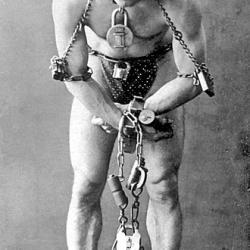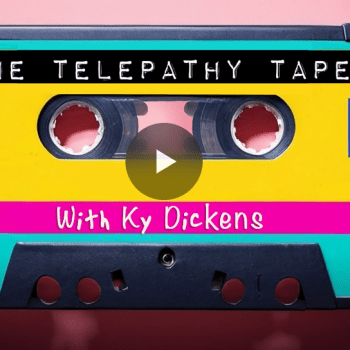The Hogfather is a Santa-like figure in Discworld, a fantasy world created by English satirist Terry Pratchett. When the Auditors of the Universe contract the Assassins Guild of Ankh-Morpork to take the Hogfather out, it is up to Death to take his place and ensure the sun rises in the morning. A witty examination of Christmas custom and belief ensues as an unusual band of characters work to save Hogfather and Hogwatch Night.
The Hogfather is explained to have evolved from early "pagan" sacrifices to bring back the waning sun. Though the holiday has evolved into something resembling Christmas, it is still tied in a very basic way to the return of the sun. When the Auditors decide that the Hogfather doesn't "add up" in their logical and ordered universe, they place not only the holiday in danger, but the return of the sun becomes less likely as well.
From the explanation of the socio-economic ramifications of gift-giving, to the Unseen University's attempt at artificial intelligence, to Death trying to impersonate the Hogfather with his dour sounding "Ho, Ho, Ho!," Hogfather is a hilarious film that adults will love as much as children. Aside from the absurdities and satire of the illogical customs and commercialism of Christmas, Hogfather has a sound base of Pagan virtues and thought. It's no accident this film has become beloved in our communities.
Death explains that "humans need fantasy to be human." There is no scientific basis for goodness, mercy, honor, kindness, justice, duty, etc. These are human "inventions" to some degree. There is nothing in the basic structure of the universe that suggests anything beyond a struggle for survival. Humans have a unique capacity for imagining things that are not there. We do not accept the world as it is but are forever imagining how it could be. As Ricky Gervais describes it in The Invention of Lying, a lie is something that is not. Humans believe in things that are not, until they are. Once upon a time the Pyramids of Giza were not. Once upon a time Stonehenge was not. Once upon a time democracy was not, punk rock was not, and stuffed crust pizza was not. While buildings, food and rhythmic sound vibrations have some material existence, democracy is less palpable. It is an idea we hold to be true, though it is not measurable by any material means, nor has it been charted by the physical sciences.
Do we "believe the little lies so we can believe the big ones"? Most of us feel that these "big lies" are actually part of our relationship with our Gods. We didn't invent virtue but either received it or co-created it with the Gods. Our capacity for creation, for believing in things that are not until they are, is part of what makes us like the Gods. Though Terry Pratchett explains this in a very cynical way, it is true that humans have a healthy capacity for fantasy and that is precisely what makes us human. Einstein is reported to have said, "Imagination is more important than knowledge." Had we not invented elaborate fantasies and mythologies surrounding the stars, would we have ever landed on the moon? Or would we have placidly accepted the heavens at face value without thought? It was a search for the improbable through alchemy that led to modern chemistry. It was a gamble on an untested theory of an imagined round earth that brought Europeans to the Americas. It was a daydream under an apple tree that brought us the theory of gravity. All science begins from theory, and what is theory but imagining that which is not until it is? When it is not after all, do we deride imagination? Or do we simply imagine something new?
Just so, in religion we imagine what the Gods are like until we encounter them and discover their reality for ourselves. Does that diminish our early imaginings? Not at all. They are the bridge between what is and what can be. That is the underlying lesson of Hogfather: fantasy is important because it is the path to that which is possible and true. Especially for Pagans, it is a truism that though your path begins in myth, fantasy, flamboyant theatrics and wild imaginings, that does not mean you will not arrive at truth, potential, possibility and the cauldron of creation if you keep moving forward.
Like the Hogfather himself, we've come a long way and the journey has been good and promises to get better. It is true that though we Pagans do not cause the sun to rise on Solstice day, that does not mean our devotion and faith and observance are not necessary to raise the Sun of human imagination, intellect and survival each year. For all of its cynicism and satire, Hogfather reminds us that humans are always struggling to rescue the light, that it is our most precious duty to participate in this sort of ritual because it is the origin of our very unfettered, unbounded and unrestrained humanity.
Hogfather (2006) is available on DVD and is available for streaming on Netflix at time of writing.
12/26/2010 5:00:00 AM





